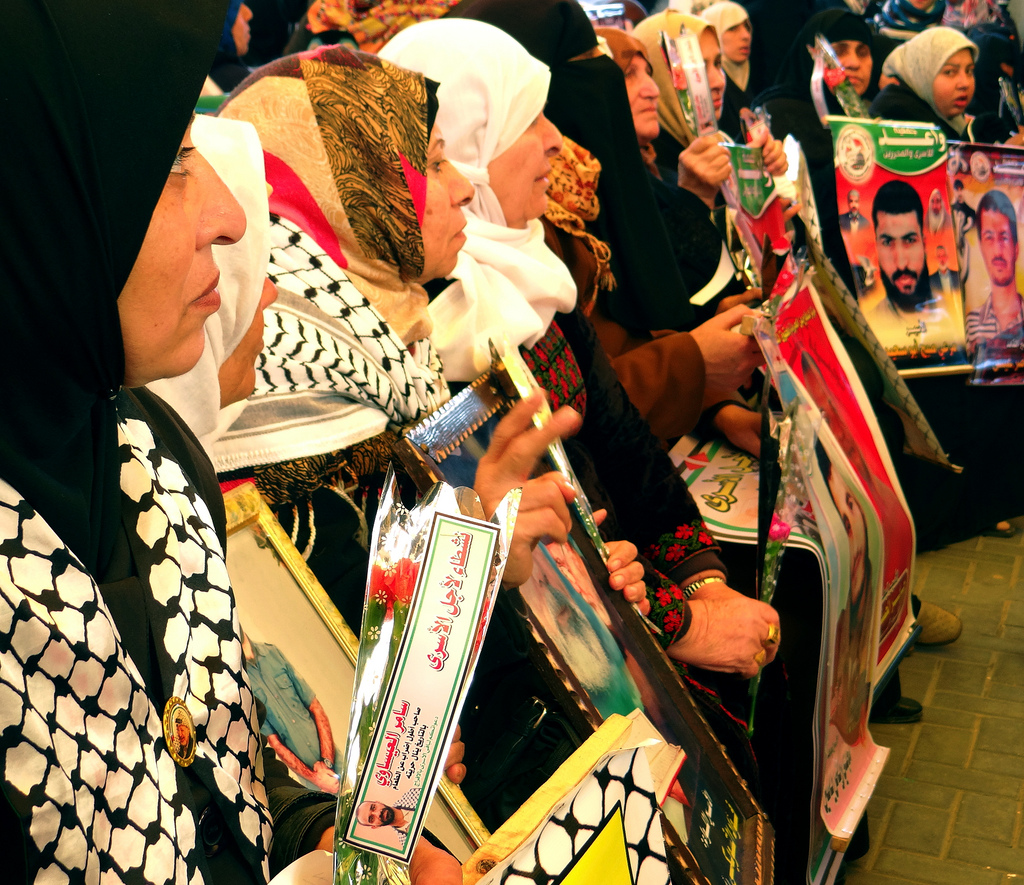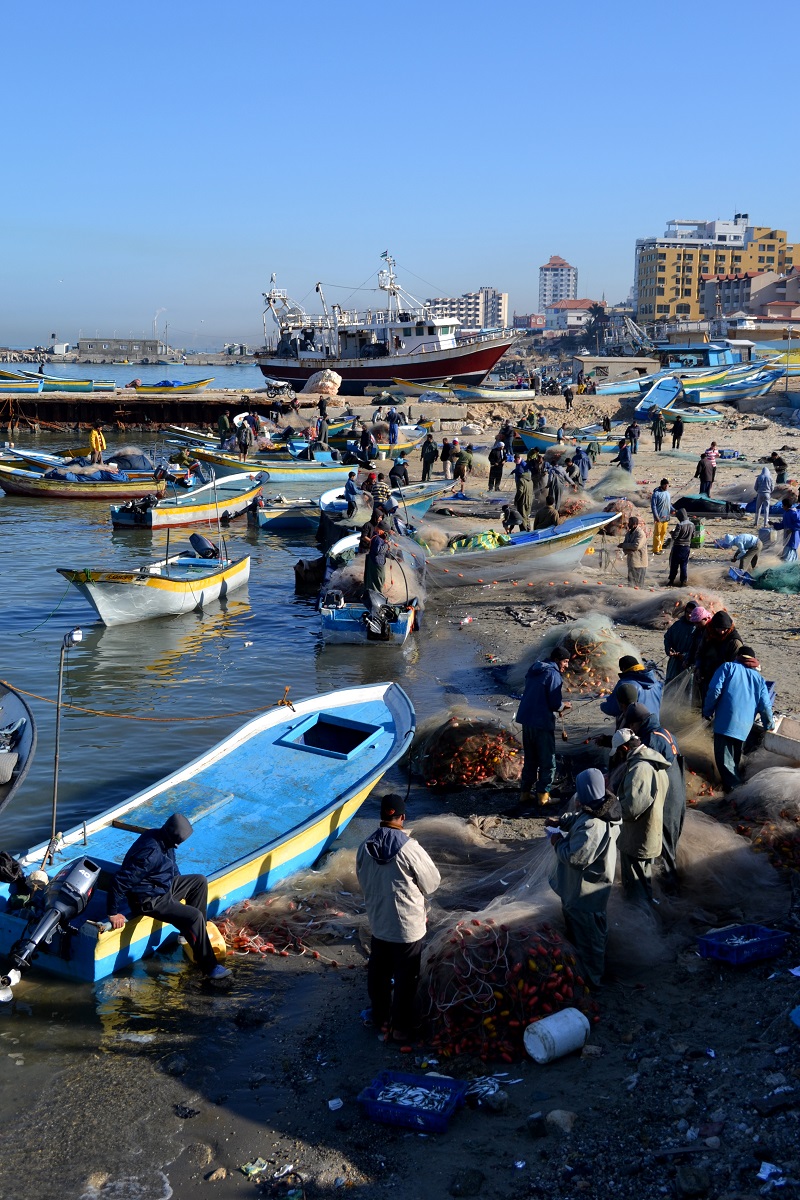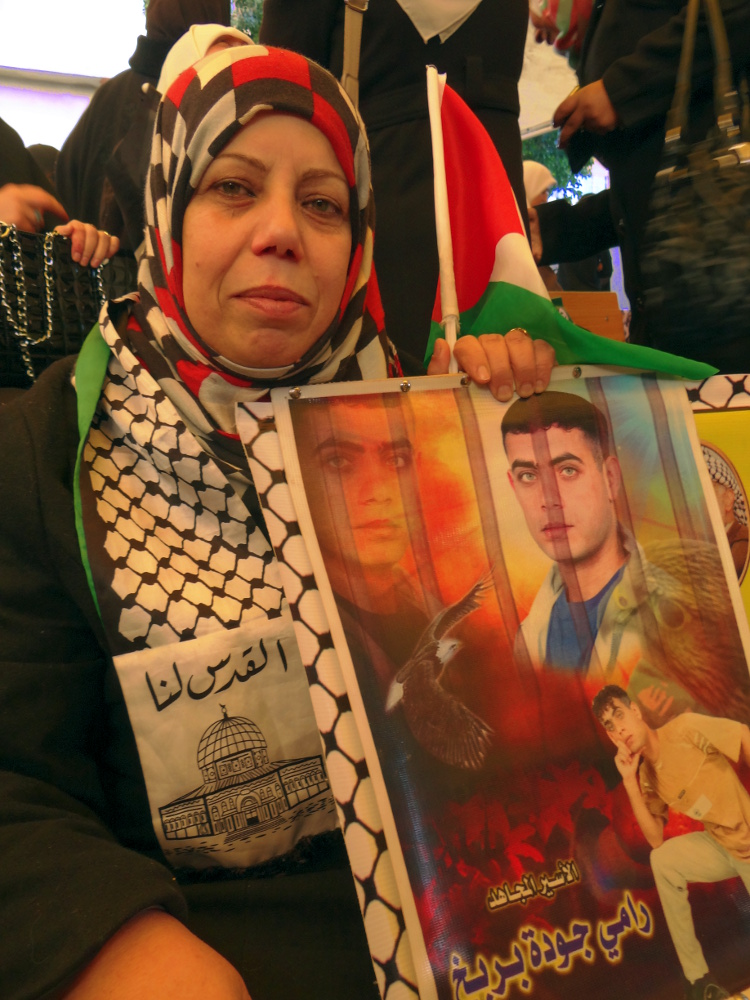Tag: sit-in
-

Photos: Palestinians rally for prisoners in Gaza as Samer Issawi freed in Jerusalem
27th December 2013 | International Solidarity Movement, Marco Varasio | Gaza, Occupied Palestine On 23rd December, like every Monday morning, relatives and friends of the Palestinian prisoners in Israeli jails gathered at the International Committee of the Red Cross’ Gaza office for the weekly rally. But people at the rally had another reason to gather:…
-

Gaza: “Free the Holy Land sea”
23rd December 2013 | International Solidarity Movement, Rosa Schiano | Gaza, Occupied Palestine “Free the Holy Land sea” was a three-day protest by fishermen in Gaza which began on Tuesday, 17th November. The fishermen, supported by the Palestinian Center for Human Rights and al-Mezan Center for Human Rights, set up a tent at the Gaza…
-

At Gaza sit-in for detainees, Um Rami and Um Dia’a hope sons will be released next week
17th December 2013 | Resistenza Quotidiana, Silvia Todeschini | Gaza, Occupied Palestine Every Monday, activists and relatives of political prisoners in Israeli jails attend a solidarity sit-in inside the courtyard of the International Committee of the Red Cross in Gaza. The perseverance of these women and men, who have met here every week for eighteen years,…
